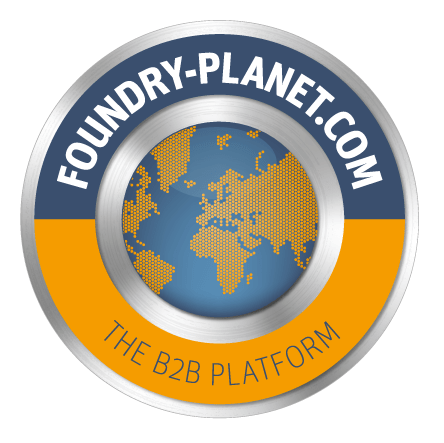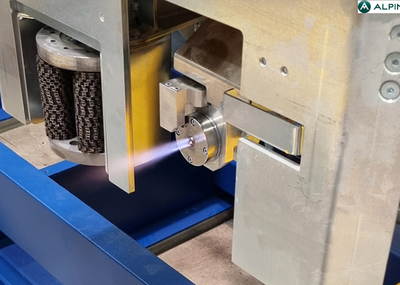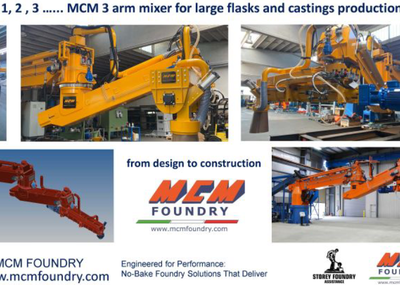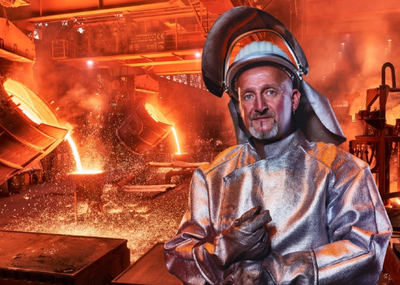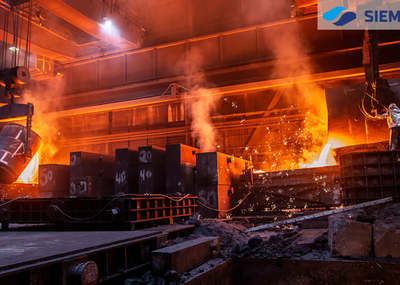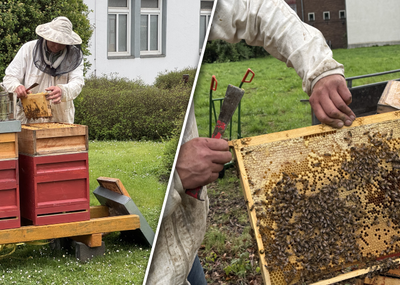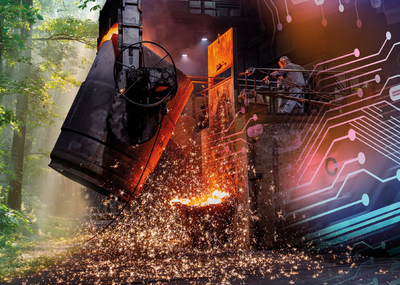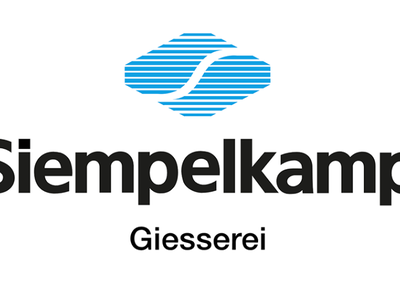In light of the transformation taking place in energy-intensive SMEs and the current debate about Germany as an industrial location, Deputy Minister-President and Minister for Economic Affairs of North Rhine-Westphalia Mona Neubaur visited the Siempelkamp foundry to gain an impression of the innovative solutions the medium-sized company is using to meet the challenges of global competition.
With a complex corporate strategy, the Siempelkamp foundry itself provides the prototype blueprint for successful transformation for energy-intensive, medium-sized industry. Deputy Minister-President and Minister for Economic Affairs Mona Neubauer wanted to see this special, forward-looking project for herself at Europe's largest hand moulding foundry. The company's goal is to compensate for existing location disadvantages and achieve greater competitiveness, efficiency and sustainability in a challenging market environment characterised by global economic tensions.
A blueprint for the industry
With a broad-based investment program for the future that is new in this form, the Krefeld-based technology leader is focusing specifically on digitalisation, automation and a unique energy architecture – in order to increase grid stability and make load flexibility economically viable, among other things. Siempelkamp Giesserei is simultaneously setting new technological and ecological standards through greater energy efficiency, digital control and resource-saving processes. The industrial system concept serves as a beacon for economically viable decarbonisation and flexibilisation in North Rhine-Westphalia. The aim is to secure the industrial location while transforming energy-intensive processes.
A sustainable industry needs investment – and political support
During the site visit, the minister explored key areas of the foundry operations, from the foundry itself, with a live casting of an 80-tonne casting, to the cleaning shop and the innovative new sand recycling plant, which significantly increases the proportion of recycled moulding material while also considerably reducing heavy goods traffic. Finally, the minister was able to see the heart of quality assurance, the world's largest robot measuring cell, in action. Here, components weighing several tonnes and measuring several metres in length are measured fully automatically, compared with 3D design data and thus a new level of quality in industrial component testing is achieved.
The discussion focused on how energy-intensive industrial production in Germany can remain viable in the future and what framework conditions are needed to enable small and medium-sized industrial companies to invest, transform and remain competitive. The planned investment programme of the company and the question of the role of active industrial policy in an increasingly tense global environment were at the centre of
of the exchange with NRW Minister of Economic Affairs Mona Neubaur was the company's planned investment program – and the question of the role of active industrial policy in an increasingly tense global environment.
